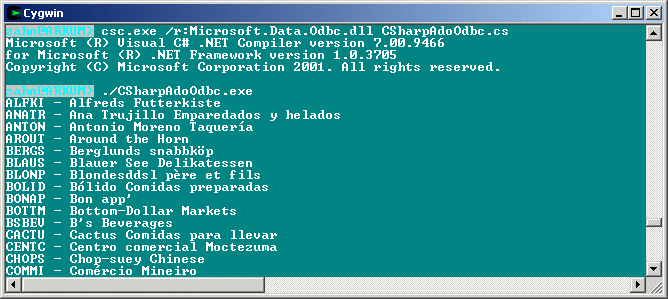Why Your Organization Needs To Take Into Consideration a Managed Database Provider
Why Your Organization Needs To Take Into Consideration a Managed Database Provider
Blog Article
Trick Functions to Seek When Choosing a Data Source Supplier
Choosing a data source provider is a vital decision that can dramatically affect your organization's information and procedures monitoring approach. Among the crucial features to consider are scalability options, which guarantee that your system can adapt to growing demands.
Scalability Options
When selecting a database provider, understanding scalability alternatives is vital to making certain that the picked remedy can suit future development. Scalability describes the capability of a database system to expand its ability and performance in response to raised demand. There are two main sorts of scalability: straight and upright.
Upright scalability, or "scaling up," entails improving a solitary web server's sources, such as CPU, RAM, or storage. This strategy can be straightforward and economical for smaller applications but may get to a limitation where further upgrades are too pricey or unwise.
Horizontal scalability, or "scaling out," entails including extra web servers to disperse the lots. This strategy permits for higher flexibility and can suit considerable increases in information volume and customer web traffic (database provider). It is particularly beneficial for cloud-based data source services that can dynamically allot resources based upon demand

Safety Procedures

When reviewing security actions, take into consideration the execution of security procedures (database provider). Data-at-rest and data-in-transit security are vital to make sure that sensitive information remains safeguarded, also in case of a security violation. Additionally, search for companies that offer solid authentication devices, such as multi-factor authentication (MFA), to better improve accessibility control
Routine protection audits and conformity with market requirements, such as GDPR or HIPAA, are a measure of a supplier's dedication to information protection. Furthermore, inquire concerning their occurrence feedback strategy; a durable strategy can minimize the effect of any kind of possible protection case.
Performance Metrics
Assessing efficiency metrics is crucial for companies to guarantee that their selected database service provider meets functional demands. Trick efficiency metrics consist of action time, scalability, and throughput, which jointly establish the efficiency of database procedures under varying loads.
Feedback time is vital, as it mirrors how promptly the database can refine queries and return results. Organizations ought to seek metrics that indicate typical feedback times during top and off-peak hours. Throughput, commonly measured in transactions per 2nd (TPS), offers understanding right into the data source's ability to deal with high quantities of demands without efficiency degradation.
Scalability evaluates the database's capability to grow with the company's demands. A durable data source company must show vertical and horizontal scaling capabilities, permitting smooth adjustments as demands change. Furthermore, recognizing latency, specifically in dispersed systems, can aid companies review the responsiveness of the data source throughout various geographical places.
Consumer Assistance
Trusted consumer support is a cornerstone of effective data source monitoring, supplying organizations with the assistance required to settle concerns and enhance efficiency. When choosing a database copyright, reviewing the level of customer assistance they offer is vital. A robust support system must include numerous networks of communication, such as phone, e-mail, and live chat, ensuring that individuals can access help whenever they require it.
Additionally, receptive support groups that are offered 24/7 greatly improve the reliability of the data source service. Motivate reaction times and reliable resolution of problems can significantly reduce downtime and increase overall efficiency. It is also helpful to consider the schedule of dedicated assistance personnel, that can offer customized assistance based on an organization's details requirements.

Pricing Structure
When considering a database service provider, the prices structure is an essential factor that can substantially impact a company's spending plan and overall technique. A clear see this here and adaptable prices design is important for straightening the data source sets you back with service requirements - database provider. Organizations ought to evaluate whether the pricing is based on consumption, per individual, or a flat price, as each design can generate various monetary implications over time
It is necessary to examine any kind of added costs connected with the supplier's solutions, such as information storage space costs, purchase expenses, and support charges. Some suppliers may supply tiered pricing, enabling scalability as the organization grows, while others may impose rigorous restrictions that can end up being costly as data needs raise.
In addition, organizations ought to consider the lasting value of the data source option. While lower first costs can be attractive, they may not make up future upgrades, maintenance fees, or assimilation costs. Performing a thorough cost-benefit analysis will certainly aid recognize the most ideal rates structure that balances assistance, performance, and scalability, eventually making certain that the picked data source copyright straightens with the company's monetary and operational purposes.
Final Thought
In final thought, picking a data source provider requires careful factor to consider of various essential functions. Reviewing performance metrics allows the recognition of efficient data sources, and available customer support improves the general individual experience.
Picking a database provider is a critical decision that can significantly affect your organization's operations and data management method.When picking a data source service provider, recognizing scalability options is vital to ensuring that the selected remedy can fit future development. When choosing a database company, evaluating the level of consumer support they supply is why not look here necessary.When thinking about a data source provider, the prices structure is a crucial factor that can considerably impact an organization's spending plan and general method. Conducting a detailed cost-benefit evaluation will help identify the most suitable prices framework that stabilizes efficiency, scalability, and support, ultimately making sure that the chosen data source copyright lines up with the organization's monetary and functional goals.
Report this page